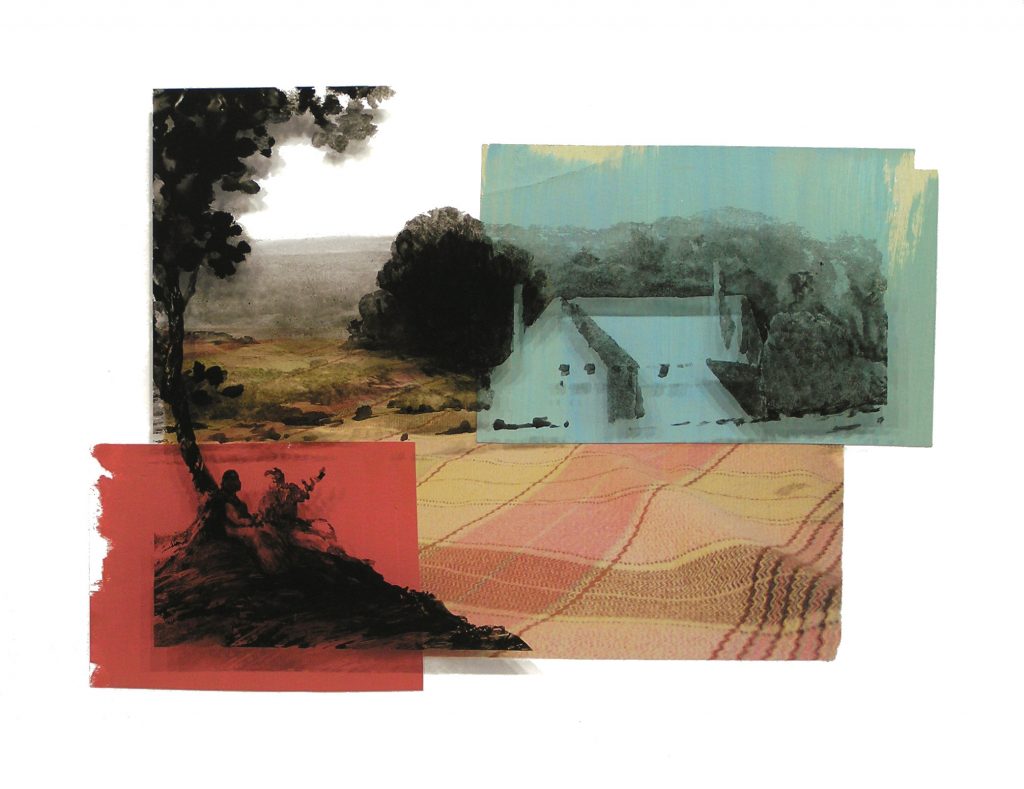
Fallen Landscapes
Contemporary art by Godfried Donkor & John Workman at Milton’s Cottage
29 September – 28 October 2023
Milton’s portrayal of the Garden of Eden in Paradise Lost has played a talismanic role in British culture, offering fertile imagery to inspire literature, language and landscape across the centuries. His beautiful, fabled garden – and the poetry through which he portrays it – provides the framework for Fallen Landscapes, an autumn exhibition of new artworks by Godfried Donkor and John Workman.
Their work reflects on the British love affair with landscape art since the 17th century, when examples of the genre first arrived from Holland and Italy. The doomed King Charles I did much to bring this fashionable new artform to Britain, and the beginning of British landscape painting can be traced to one of the most violent periods in our history – when civil war, rebellion and regicide tore the country apart.
Milton’s own visionary poetic landscapes came into existence during these revolutionary times. Blind, and permanently exiled from political life following the Restoration of the Monarchy (as Cromwell’s spin doctor he was considered lucky by many to escape with his life) he dictated an epic series of falls – of the angels, of Adam and Eve, of human language – that led to the corrupt and warlike world in which he lived.
His descriptions of Eden influenced the development of British landscape art, and Workman explores his complex legacy, mixing images by his contemporaries and those he influenced, such as Claude Lorraine, Richard Wilson and Thomas Jones (who painted a view of Milton’s Cottage itself in 1774). In doing so, he explores how our literary and visual landscapes have perpetuated nostalgia for a seemingly lost past.
Against these fantastical bowers and fairytale settings, Donkor’s collages explode with explicit directness. Cartography, cut-out ransom letters and his trademark FT backdrops combine with a 1657 map from Richard Ligon’s True and Exact Historie of the Island of Barbadoes to locate Milton’s poetry of paradise within the realms of sectarian conflict and colonialism.
As England built its empire, authors of natural histories sought Eden in the Caribbean and catalogued God’s creation in luxury folios. Likewise, English poets imagined these distant frontiers and through his Magellan-like circumnavigation of the Earth, Cortes-like seduction of Eve and extractivist mining practices to build Pandemonium, Milton’s Satan becomes a prototype for European colonialism.
Milton associates such activities with the fall of Mankind, and his descriptions of Eden in Paradise Lost work to unsettle insular myths and expansionist ambitions. The art of Donkor and Workman combines to amplify this political critique. Responding to the poem’s universal themes of creation, temptation, failings and fallings, their work offers a way to navigate Milton’s epic masterpiece for contemporary audiences.
